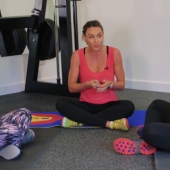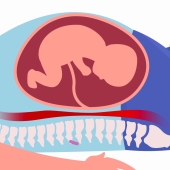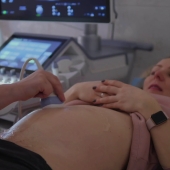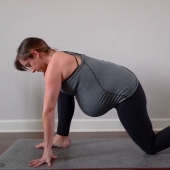Around half to two-thirds of all pregnant women will experience morning sickness to some degree, particularly in the first trimester. The symptoms include nausea and vomiting. Morning sickness is typically at its worst early in the day, hence its name, but it can strike at any point during the day or night.
For most women, morning sickness begins around the fourth week of pregnancy and resolves by the 12th to 14th week. However, one in five women endures morning sickness into their second trimester, and an unfortunate few experience nausea and vomiting for the entire duration of their pregnancy.
For some expectant moms, it might as well be called morning, noon, and night sickness. But there are ways to quell the queasiness.
Warning: Call your doctor if you have a fever, or your nausea and vomiting persists well beyond your 13th week, and check with them before taking any medications.
Step 1: Take prenatal vitamins - If you're trying to get pregnant, start popping prenatal vitamins now. Some studies indicate they can help prevent morning sickness if taken at the time of conception.
Step 2: Eat before rising - Set your alarm clock for a little earlier than usual so you don't have to jump out of bed. Nibble on crackers or dry cereal before you get up.
Step 3: Stay hydrated - Sip fluids throughout the day – but not with meals. Have a beverage half an hour before and after you eat.
Tip: If drinking makes you queasy, try eating foods with a high water content – like lettuce, melon, and citrus fruits.
Step 4: Eat mini-meals - Eat small meals throughout the day so you don't get too hungry – or too full.
Step 5: Avoid cooking smells - If you can't stand the smell, get out of the kitchen! Let someone else do the cooking, or turn on the exhaust fan over the stove to draw out odors. Whoever's cooking, make sure to prepare bland foods that don't smell strong.
Step 6: Try anti-nausea remedies - Try remedies that have been found to relieve nausea: ginger root, ginger candy, lemons, lemonade, and peppermint tea. Just sniffing them can help. Salty chips also calm some stomachs.
Tip: If you're vomiting a lot, brush your teeth more often. You'll feel better with a fresh mouth, and you'll reduce the chances of tooth decay.
Step 7: Talk to your doctor - Talk to your doctor. They may suggest vitamin B6, a supplement that sometimes helps with nausea and vomiting.
Step 8: Try alternate cures - If all else fails, try an alternative route. Acupuncture and hypnotism help some women.
- 1993 views













